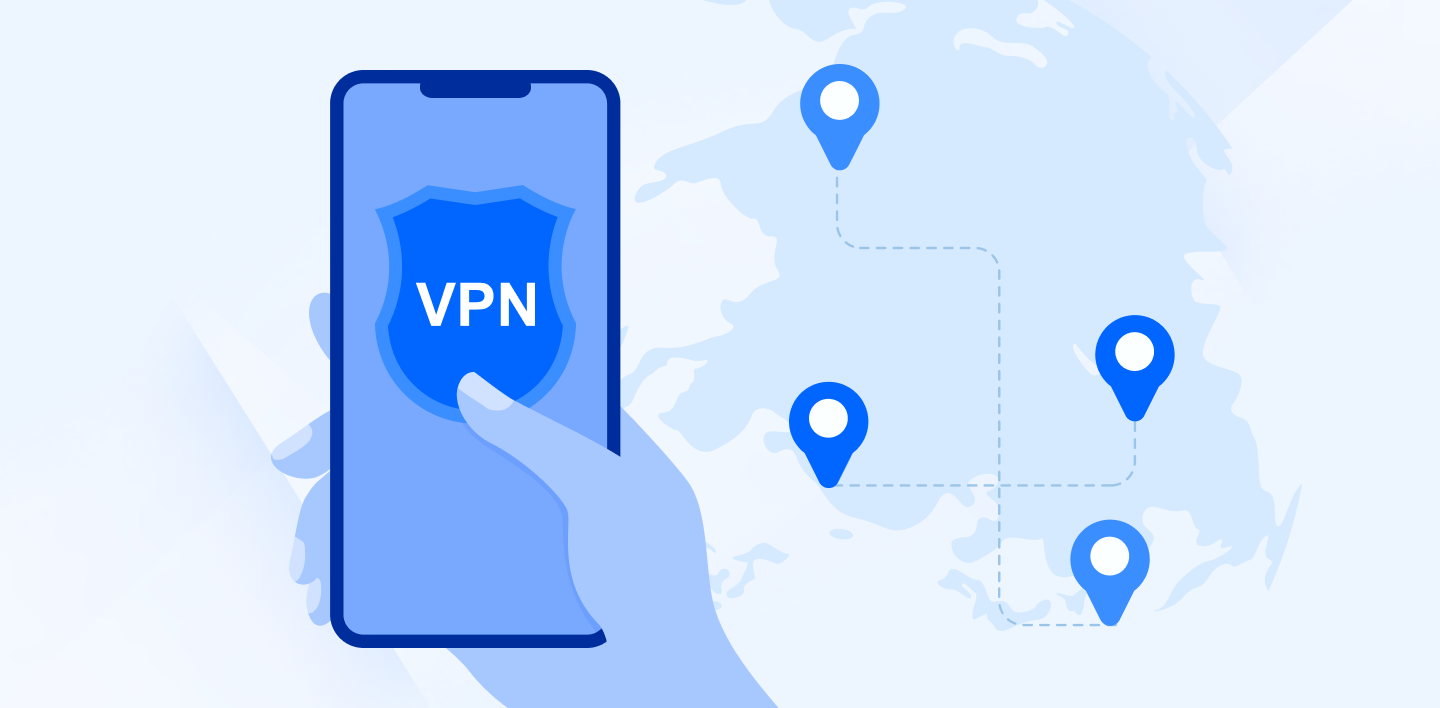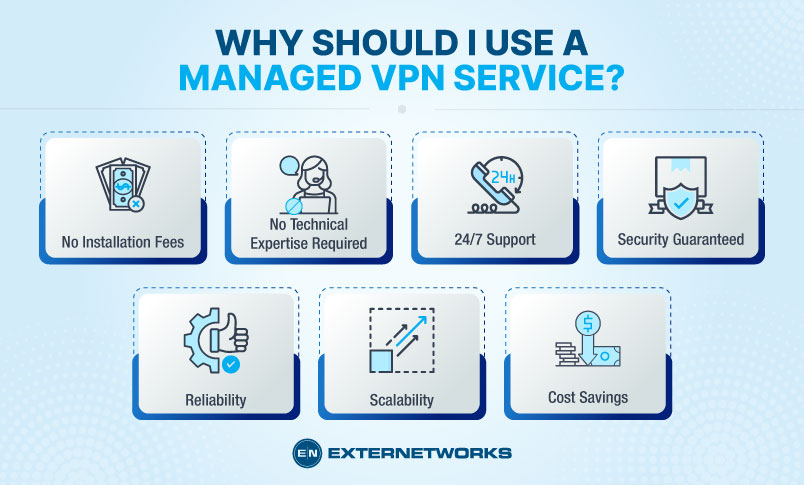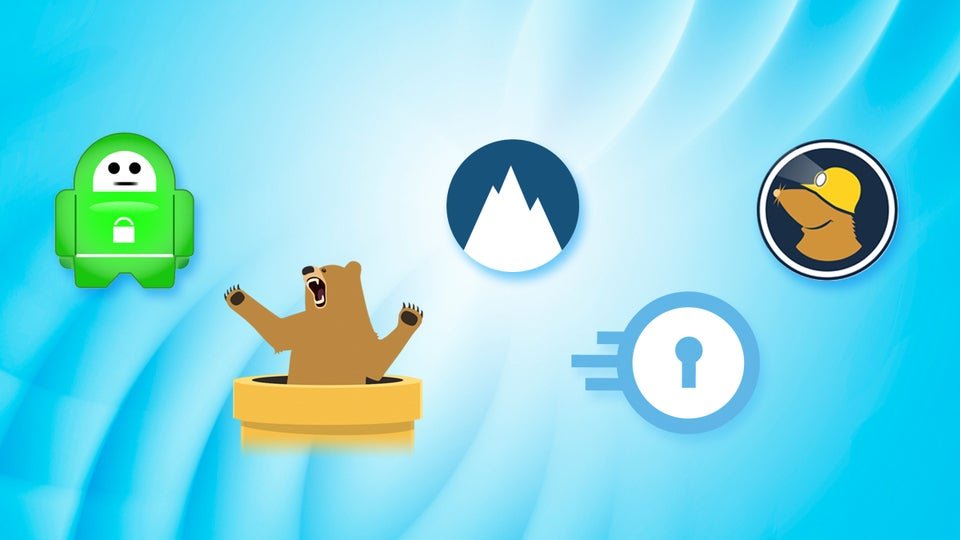VPN services provide secure internet connections by encrypting data and masking IP addresses. They protect online privacy and enhance security.
VPNs, or Virtual Private Networks, are essential in the digital age. They offer a secure connection over the internet, safeguarding data from hackers and prying eyes. By masking your IP address, VPNs help maintain your online anonymity, making it difficult for third parties to track your activities.
Additionally, they allow access to geo-restricted content, enabling users to enjoy a broader range of digital services. VPNs are crucial for individuals seeking enhanced privacy, security, and unrestricted browsing. The use of VPN services continues to grow as more people recognize the importance of protecting their online presence.

Credit: blog.internxt.com
Introduction To Vpn Services
Virtual Private Networks (VPNs) have become essential for maintaining online privacy. In this section, we will explore what a VPN is and the importance of online security.
What Is A Vpn?
A VPN is a tool that encrypts your internet connection. It provides a secure tunnel for your data. This makes it hard for hackers to access your information.
VPNs hide your IP address. This helps you stay anonymous online. You can also access content blocked in your region.
Importance Of Online Security
Online security is crucial in today’s digital age. Many threats exist on the internet. These include hackers, malware, and phishing attacks.
Using a VPN protects you from these threats. It encrypts your data, making it unreadable to anyone trying to intercept it.
Here are some key benefits of using a VPN:
- Protects your personal information
- Keeps your browsing history private
- Allows secure access to public Wi-Fi
- Prevents tracking by websites and advertisers
How Vpns Work
A VPN, or Virtual Private Network, keeps your data safe. It creates a secure connection between your device and the internet. This connection hides your online activity and location. Here’s how it works:
Encryption Technology
Encryption is key to a VPN’s security. It scrambles your data into unreadable code. Only the intended receiver can decode it. This keeps your information private.
There are different encryption standards:
- AES-256: Highly secure, used by governments and banks.
- AES-128: Faster but less secure than AES-256.
- RSA: Often used for key exchanges.
VPNs use these standards to keep your data safe.
Tunneling Protocols
Tunneling protocols create a secure “tunnel” for your data. This tunnel protects your data from prying eyes. Here are some common tunneling protocols:
- OpenVPN: Very secure and open-source.
- L2TP/IPsec: Combines Layer 2 Tunneling Protocol with IPsec for security.
- PPTP: Older and less secure but fast.
- IKEv2/IPsec: Stable and secure, great for mobile devices.
Each protocol has its own strengths. The right one depends on your needs.
Both encryption and tunneling work together. They ensure your online privacy and security.
Benefits Of Using A Vpn
Using a VPN offers many advantages. It enhances your online experience. It keeps your data safe and private. Let’s explore some key benefits of using a VPN.
Enhanced Privacy
Enhanced privacy is one of the main benefits of a VPN. It hides your IP address. This makes it hard for others to track you. Your online activities remain private.
A VPN encrypts your data. This means your information is safe from hackers. Even on public Wi-Fi, your data stays secure. No one can see what you are doing online.
Here are some ways a VPN enhances privacy:
- Hides your IP address
- Encrypts your internet traffic
- Keeps your browsing history private
Access To Restricted Content
With a VPN, you can access restricted content. Many websites and services are geo-blocked. This means they are only available in certain areas. A VPN can help you bypass these restrictions.
For example, some streaming services have different libraries in different countries. By using a VPN, you can watch shows and movies not available in your region. It also helps in accessing social media platforms blocked in certain countries.
Here are some examples of content you can access with a VPN:
- International streaming services
- Blocked social media platforms
- News websites restricted in your country
| Benefit | Description |
|---|---|
| Enhanced Privacy | Keeps your data and browsing history private |
| Access to Restricted Content | Bypasses geo-blocks to access more content |
A VPN offers many benefits for safer and more open internet use. From protecting your privacy to unlocking a world of content, a VPN is a powerful tool.
Types Of Vpn Services
VPN services come in various types. Understanding these types helps you choose the right service. Let’s explore the different kinds of VPNs available.
Free Vs Paid Vpns
VPNs can be free or paid. Free VPNs cost nothing but often have limits. They might offer fewer servers and slower speeds. Free VPNs can also have ads or limited data.
Paid VPNs charge a fee. They provide more servers, better speeds, and extra features. Paid VPNs offer better security and privacy. They usually have no ads and unlimited data.
| Feature | Free VPN | Paid VPN |
|---|---|---|
| Cost | Free | Subscription Fee |
| Speed | Slower | Faster |
| Server Options | Limited | Many Choices |
| Ads | Yes | No |
| Data Limits | Often Limited | Usually Unlimited |
Personal Vs Business Vpns
VPNs can also be for personal or business use. Personal VPNs are for individuals. They protect your data while you browse the internet. Personal VPNs are easy to set up and use.
Business VPNs are for companies. They protect sensitive company data. Business VPNs offer more advanced features. They allow remote access to company networks. Business VPNs often have higher security standards.
- Personal VPNs:
- Protect individual data
- Easy to use
- Secure browsing
- Business VPNs:
- Protect company data
- Advanced features
- Remote network access
- High security standards
Choosing The Right Vpn
Choosing the right VPN can be tricky with so many options available. This guide helps you find the best VPN service. We’ll dive into key features and popular providers.
Key Features To Consider
Before picking a VPN, check these key features:
- Encryption: Ensure the VPN uses strong encryption like AES-256.
- Speed: A good VPN should not slow your internet.
- Server Locations: More server locations mean better access.
- Logging Policy: Choose a VPN with a strict no-logs policy.
- Customer Support: 24/7 support is crucial for solving issues.
- Compatibility: Check if the VPN supports all your devices.
Popular Vpn Providers
Here are some popular VPN providers to consider:
| Provider | Key Features | Price |
|---|---|---|
| NordVPN |
|
Starts at $3.71/month |
| ExpressVPN |
|
Starts at $6.67/month |
| CyberGhost |
|
Starts at $2.25/month |

Credit: www.extnoc.com
Setting Up A Vpn
Setting up a VPN can seem daunting, but it’s quite simple. Follow these steps to protect your online activity. You’ll be surfing securely in no time.
Installation Steps
- Choose a VPN service: Select a reliable VPN provider.
- Download the app: Visit the provider’s website or app store.
- Install the app: Follow the on-screen instructions.
- Create an account: Sign up with your email and a strong password.
- Log in: Use your new account details to log in.
Configuration Tips
After installing the VPN, you need to configure it. Here are some tips:
- Choose a server location: Select a server close to your physical location.
- Enable kill switch: This feature ensures your data stays protected if the VPN disconnects.
- Use strong encryption: Opt for AES-256 encryption for the best security.
- Check the protocol: OpenVPN is highly secure and recommended.
Troubleshooting Common Issues
Here are some common problems and their solutions:
| Issue | Solution |
|---|---|
| Can’t connect to the server | Try a different server location |
| Slow internet speed | Switch to a server closer to your location |
| VPN keeps disconnecting | Ensure your internet connection is stable |
Common Vpn Issues
Using a VPN service has many benefits, but users often face common issues. These problems can disrupt your online experience. Here, we discuss the most frequent VPN issues and how to solve them.
Connection Problems
One of the most common issues with VPNs is connection problems. Users may find their VPN disconnects frequently. This can happen due to server overload or network restrictions. To fix this:
- Ensure your internet connection is stable.
- Switch to a different server location.
- Restart your router and VPN application.
Sometimes, firewalls or antivirus software can block VPN connections. Check your firewall settings and ensure the VPN is allowed. If the problem persists, contact your VPN provider for support.
Speed And Performance
Speed and performance issues can be frustrating. A VPN can slow down your internet speed. This is often due to the encryption process. Here are some tips to improve speed:
- Choose a server close to your location.
- Use a wired connection instead of Wi-Fi.
- Select a VPN protocol that offers better speed.
Sometimes, the VPN provider’s servers may be overloaded. In such cases, switching to a less crowded server can help. Also, ensure your device is not running too many background applications.
| Issue | Solution |
|---|---|
| Frequent Disconnections | Switch servers, check firewall, contact support |
| Slow Speed | Choose nearby server, use wired connection |
By understanding these common VPN issues, you can enjoy a smoother online experience. Addressing these problems quickly ensures your VPN service works efficiently.

Credit: www.pcworld.com
Future Of Vpn Technology
The future of VPN technology promises exciting changes. With evolving digital landscapes, VPNs are advancing rapidly. This blog post explores emerging trends and potential challenges in VPN technology.
Emerging Trends
New trends in VPN technology are shaping the future. Let’s dive into some of these:
- Quantum-Resistant Encryption: VPNs are adopting quantum-resistant algorithms. This protects data from future quantum computers.
- AI-Driven Security: Artificial Intelligence is enhancing VPN security. AI helps detect and prevent cyber threats.
- Integration with IoT: VPNs are increasingly integrated with Internet of Things (IoT) devices. This ensures secure connections for smart gadgets.
- Zero-Trust Networks: Zero-trust models are becoming popular. These models assume no device is secure by default.
Potential Challenges
As VPN technology evolves, it faces various challenges. Here are some potential hurdles:
| Challenge | Description |
|---|---|
| Scalability Issues | Managing large-scale VPN networks can be complex. |
| Regulatory Compliance | VPNs must comply with changing global regulations. |
| Performance | High encryption can sometimes slow down connections. |
| Security Vulnerabilities | New threats continually emerge, requiring constant updates. |
Understanding these trends and challenges helps us prepare for the future. VPN technology will continue to evolve, driven by innovation and necessity.
Frequently Asked Questions
What Is A Vpn Service?
A VPN service encrypts your internet connection, providing privacy and security. It hides your IP address, making online activities anonymous.
How Does A Vpn Work?
A VPN works by routing your internet traffic through a secure server. This masks your IP address and encrypts data.
Why Should I Use A Vpn?
Use a VPN to protect your online privacy. It secures your data on public Wi-Fi and bypasses geo-restrictions.
Are Vpn Services Legal?
Yes, VPN services are legal in most countries. However, using a VPN for illegal activities is still unlawful.
Conclusion
Choosing the right VPN service can enhance your online privacy and security. Make an informed decision by comparing features. Prioritize speed, reliability, and customer support. A good VPN will protect your data and provide peace of mind. Start exploring your options today for a safer online experience.




